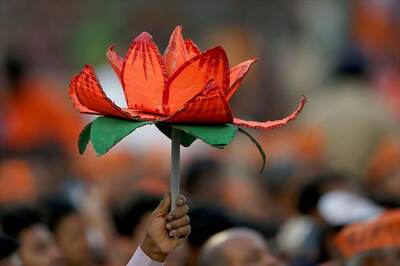
views
BANGALORE: India will launch on Oct 12 a dedicated satellite to study climatic and atmospheric changes in the tropical regions in collaboration with the French space agency, a top space agency official said Saturday."All going well, we will launch the satellite -- Megha-Tropiques -- Oct 12 to an orbit of 870 km with an inclination of 20 degrees to the equatorial region to study the life cycle of convective systems and their role in the energy and moisture budget of the atmosphere in tropical regions," state-run Indian Space Research Organisation (ISRO) chairman K. Radhakrishnan told reporters here.The 1,000-kg satellite will be launched on a 230-tonne rocket (polar satellite launch vehicle) from the space agency's spaceport at Sriharikota in Andhra Pradesh, off the Bay of the Bengal, about 80 km north-east of Chennai."The satellite will carry an imaging radiometer microwave analysis and detection of rain and atmospheric structures (MADRAS), a six channel humidity sounder (SAPHIR), a four channel scanner for radiation budget measurement (SCARAB) and GPS radio occultation system (GPS-ROS)," Radhakrishanan said.Being a joint venture between India and France, the Indian space agency will bear the launch cost of Rs.90 crore. For the cost of the satellite payload, ISRO has incurred Rs.80 crore and the state-run French space agency -- Centre National d'Études Spatiales (CNES) has contributed Rs.300 crore.Of the three instruments in the satellite, MADRAS has been built jointly by ISRO and CNES, while other two have been built by the French space agency."About 30 minutes after lift-off, the space agency's telemetry, tracking and command network (ISTRAC) will take control of the satellite and the three instruments onboard will be switched on within in the following three weeks," Radhakrishnan said.The satellite will be made operational after three-month of characterization and validation."In addition, the mission will carry three nano-satellites - a 3kg remote sensing satellite 'Jugnu' of the Indian Institute of Technology (IIT-Kanpur), a 10kg SRMSAT of the SRM University in Chennai, and a 30kg VesselSat of Luxumbourg," Radhakrishnan added.


















Comments
0 comment